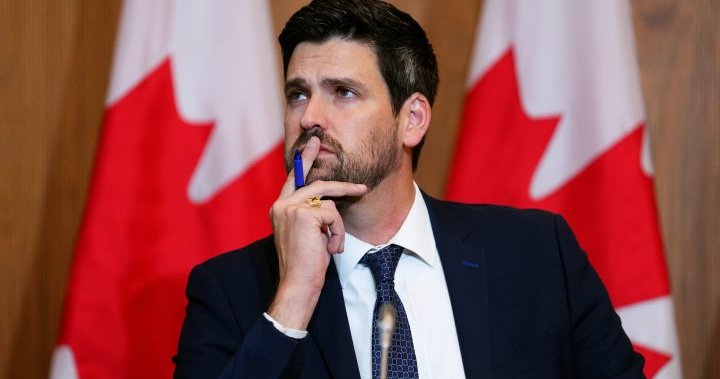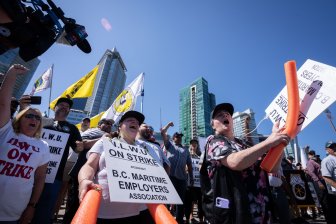A press conference in Markham, Ont., last week hosted by Liberal MP Paul Chiang seemed to offer good news for Hong Kongers hoping to flee the island increasingly under Beijing’s thumb: Canada would lift education requirements for Hong Kong immigrants with Canadian work experience.
The move, which the Liberals framed as support for Hong Kong residents in support of “freedom and democracy,” was designed to pave the way for more permanent residency applications – continuing the tradition of Canada providing a safe haven for Hong Kongers.
But the announcement raised eyebrows among pro-democracy advocates. Their concerns were twofold: the Canadian government failed to drop the requirement for Hong Kongers to get a police check to immigrate to Canada – a set of permissions that puts them at the mercy of the authorities they’re trying to escape – and the announcement was hosted by a group perceived to toe a pro-Beijing line, the Federation of Chinese Canadians in Markham (FCCM).
“It’s very nice window dressing to have a big press conference to announce the lifting of the education requirement. But it doesn’t address the meat of the issue, which is the fact that a lot of people still can’t come to Canada,” said Cheuk Kwan, a longtime activist and the co-chair of the Toronto Association for Democracy in China.
The Liberal line is that Hong Kongers will not be denied entry to Canada for an offence that is not considered criminal in Canada – such as protesting against China’s crackdown on the former British colony and its new national security law.

But Kwan said Hong Kong authorities can simply withhold a police certificate for those who have been scooped up by police for their pro-democracy protests.
The venue for the announcement – the Federation of Chinese Canadians in Markham (FCCM) – has advocates like Kwan calling into question the government’s commitment to pro-democracy protesters in Hong Kong.
The FCCM is perceived by advocates as toeing a pro-Beijing line. Global News asked Immigration, Refugees and Citizenship Minister Sean Fraser’s office how the venue was chosen, if he was aware of the concerns that the FCCM was perceived as pro-Beijing, and what message making the announcement at the FCCM sent to activist communities.
Fraser’s office did not address those questions.
“On July 11, our government announced it is welcoming more Hong Kongers to Canada who need our support, while simultaneously helping Canadian businesses fill labour gaps with workers who already have work experience here,” wrote Bahoz Dara Aziz, a spokesperson for Fraser’s office, in a statement.
“This was done in collaboration with Canada-Hong Kong community groups and is a direct result of those discussions, building on our government’s previous actions to support the many meaningful exchanges between Canada and Hong Kong while standing up for the people of Hong Kong.”

Global News sent multiple emails to Paul Chiang, Fraser’s parliamentary secretary and the Liberal MP for Markham-Unionville who made the announcement on July 11. Chiang did not respond to those emails.
Global also attempted to contact Dr. Ken Ng, the chairman of the FCCM’s board. Those messages were not returned.
There were 213,855 immigrants from Hong Kong in Canada in 2021, according to Statistics Canada’s census data. Canada saw a wave of immigration in the late 1980s and early ’90s, usually attributed to concerns over the transfer of Hong Kong from the British to China.
Concerns about the new national security law – which gives Beijing greater control over the territory, and introduced new terrorism offences – raised the potential for a new wave of immigrants fleeing authorities, who have now offered a 1 million Hong Kong dollar (CAD$168,800) bounty for assistance in arresting dissidents who have already fled the territory.
© 2023 Global News, a division of Corus Entertainment Inc.




